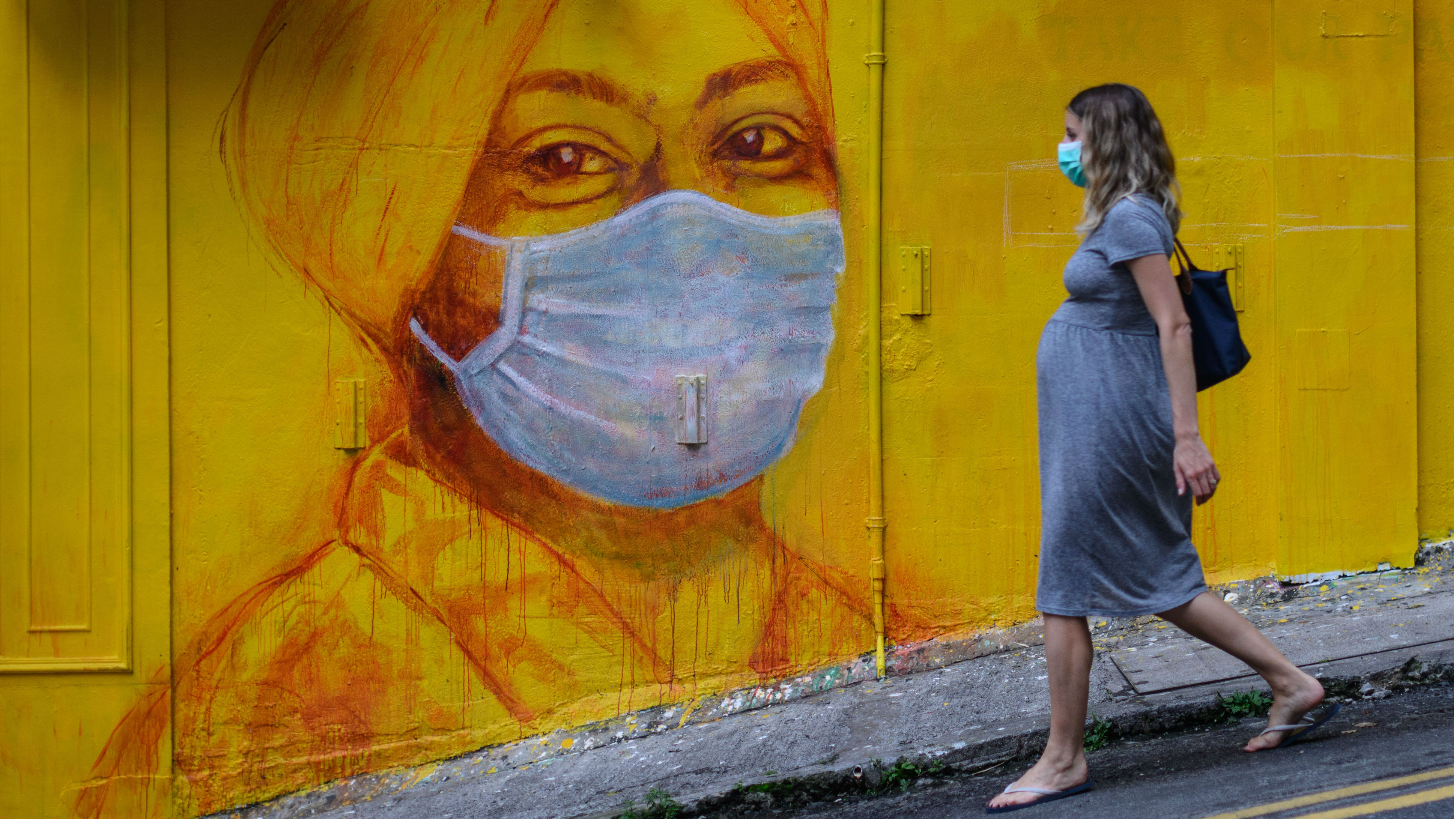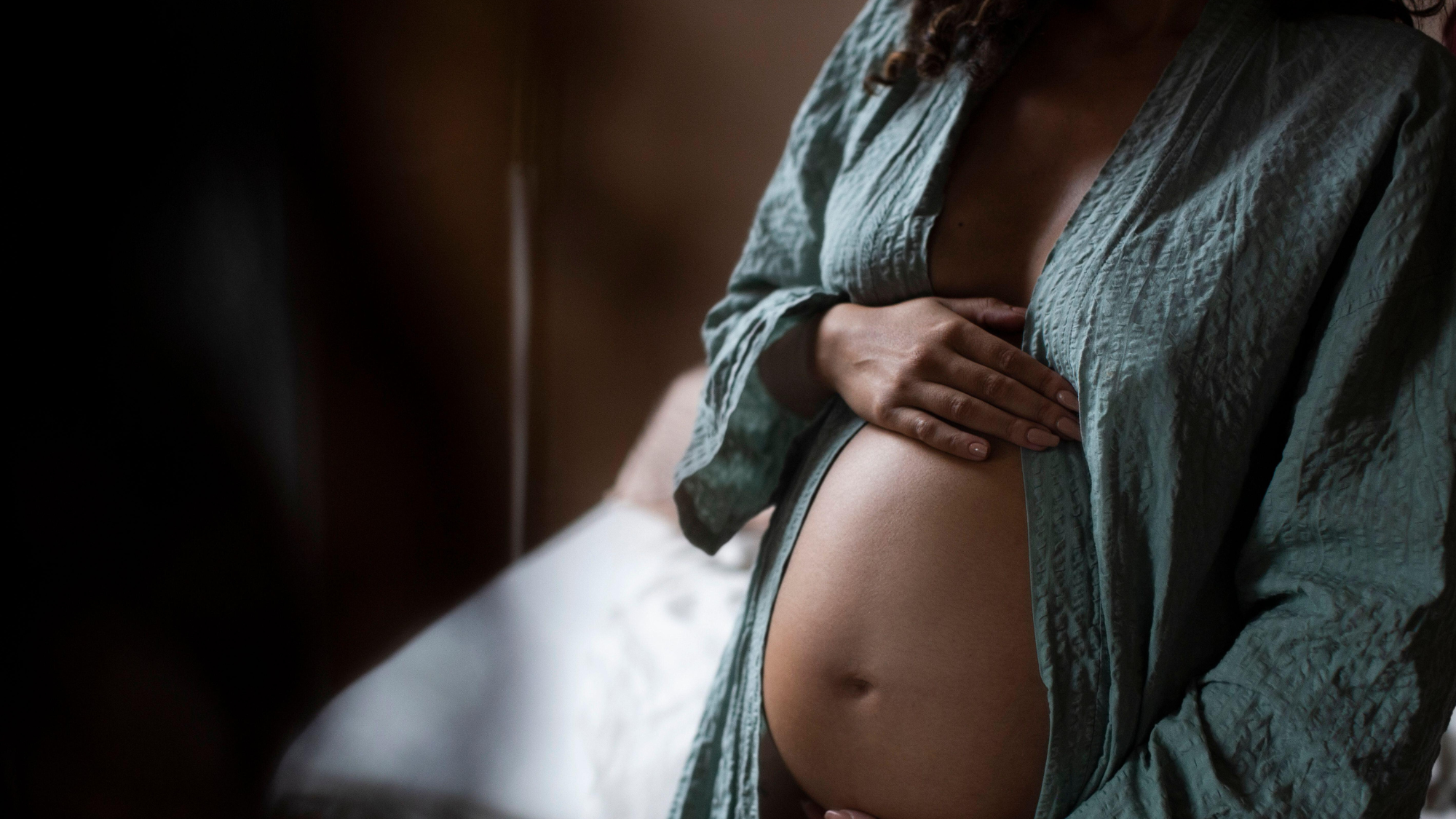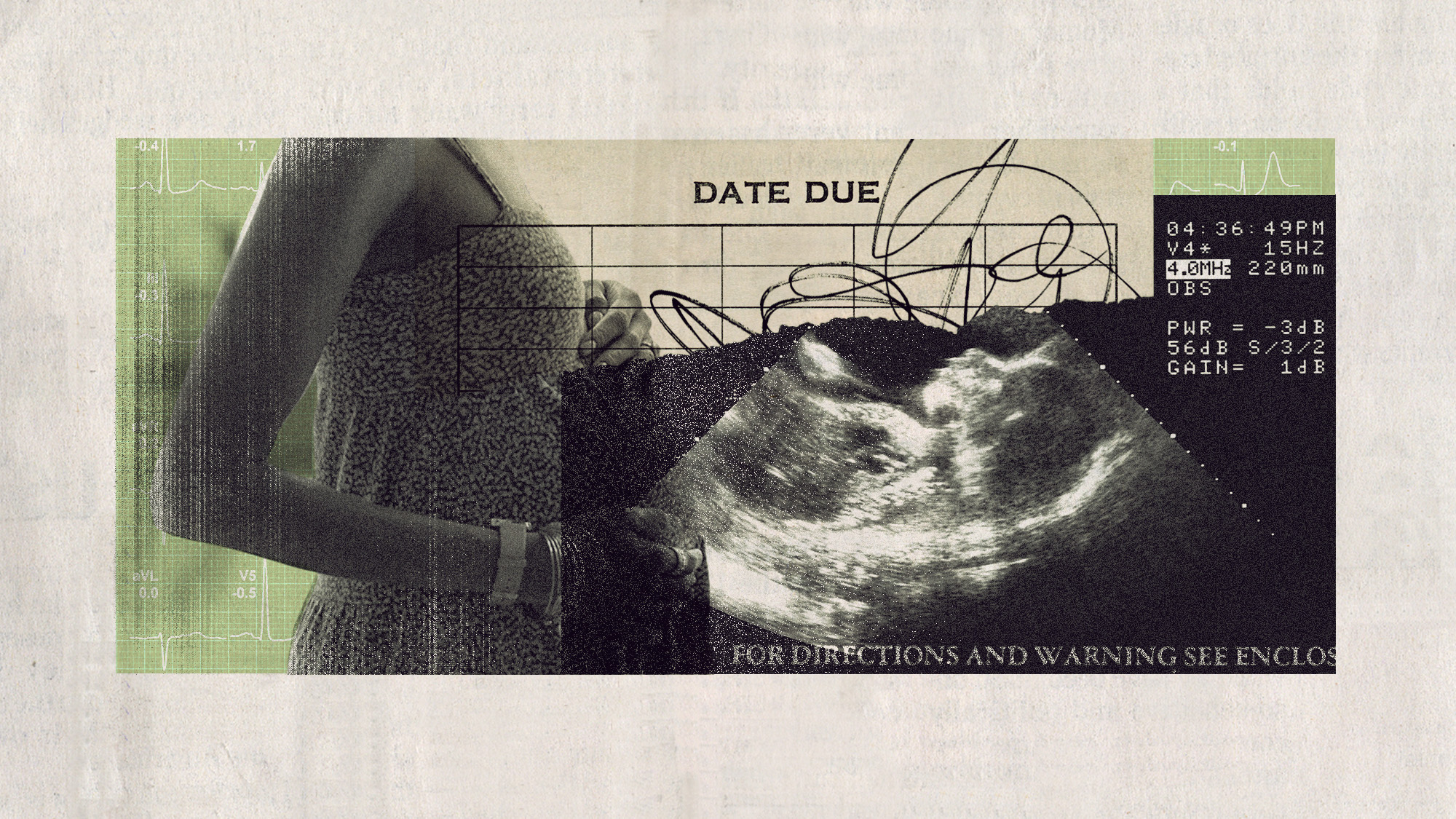Coronavirus and women’s bodies: the new rules
The pandemic is changing the lives of females worldwide in unexpected ways

A free daily email with the biggest news stories of the day – and the best features from TheWeek.com
You are now subscribed
Your newsletter sign-up was successful
Changes in rules and services that disproportionately affect women and their bodies have been among the unforeseen consequences of the coronavirus outbreak.
Of the two sexes, men are proving more susceptible to Covid-19, with higher mortality rates reported among males worldwide, but some of the indirect effects for women are also significant and potentially life threatening.
Domestic violence
The Week
Escape your echo chamber. Get the facts behind the news, plus analysis from multiple perspectives.

Sign up for The Week's Free Newsletters
From our morning news briefing to a weekly Good News Newsletter, get the best of The Week delivered directly to your inbox.
From our morning news briefing to a weekly Good News Newsletter, get the best of The Week delivered directly to your inbox.
Women’s Aid has called for more resources from the UK government as the charity faces a surge in domestic violence cases as a result of the coronavirus lockdown - a trend that has also been reported in China and a number of other countries.
“It’s estimated that 1.6 million women in England and Wales experienced domestic abuse last year, and it’s overwhelmingly women who endure repeated attacks (83% of victims of more than ten incidents are women),” reports Prospect magazine. “The risk is that under self-isolation, controlling perpetrators will further restrict their partner’s freedoms and threaten their safety.”
In an article published in The Mail on Sunday at the weekend, Home Secretary Priti Patel clarified that anyone at risk of domestic abuse is allowed to leave their home to seek refuge.
She said: “My message to every potential victim is simple: we have not forgotten you and we will not let you down. And my message to every perpetrator is equally simple: you will not get away with your crimes.”
A free daily email with the biggest news stories of the day – and the best features from TheWeek.com
Pregnancy and birth
Pregnant women were unexpectedly placed in the “vulnerable” group by England’s chief medical officer on 16 March, and advised to reduce social contact for at least 12 weeks.
The Royal College of Obstetricians and Gynaecologists (RCOG) says that “pregnant women are still no more likely to contract coronavirus than the general population” and that “there is no evidence that pregnant women who get coronavirus are more at risk of serious complications than any other healthy individuals”.
However, the evidence is limited, so pregnant women have been classed as vulnerable as a precautionary measure.
–––––––––––––––––––––––––––––––For a round-up of the most important stories from around the world - and a concise, refreshing and balanced take on the week’s news agenda - try The Week magazine. Start your trial subscription today –––––––––––––––––––––––––––––––
Meanwhile, some hospital trusts have limited birthing options, including cancelling all home births and banning visitors - in some cases, even fathers - from hospital wards before and after labour.
The RCOG currently says that women should be encouraged to have an asymptomatic birth partner for their labour and birth, noting that this is “known to make a significant difference to the safety and well-being of women in childbirth”.
Despite such advice, hospitals in other countries including Ireland and France have banned expectant fathers and partners from births.
More than 300,000 people have signed a petition to protect women’s rights to have a birth partner during the coronavirus outbreak in the UK, amid fears that British hospitals might follow suit.
High-risk roles
In an article for The Guardian, BBC Radio 5 Live presenter Emma Barnett points out that despite being advised to stay at home, some pregnant women have been “told to come back into work by their employers – including the riskiest of all, the NHS”.
As Barnett says, “this leaves women working in healthcare with an uncomfortable decision: do they protect the lives of their unborn, or those seeking treatment?”
A study by economics think-tank Autonomy found that in the UK, female workers account for more than three-quarters (2.5 million out of 3.2 million) of the job roles that involve high risk of exposure to the new coronavirus, in fields such as social care, nursing and pharmacy.
Abortion
The UK government has been flip-flopping over the rules on terminations. On 23 March, the Department of Health published guidance stating that laws were being relaxed during the lockdown to allow women to take pills to abort early pregnancies at home without travelling to a clinic - but then withdrew the reform just hours later.
Following pressure from the RCOG, Royal College of Midwives and the British Pregnancy Advisory Service, the department has now made another U-turn and says that women will be able to have home abortions following a phone or online consultation. “This measure will be on a temporary basis,” a spokesperson said.
IVF
In a “perverse contrast” to the battle to allow women access to home abortions, “consider the deeply unenviable position of those longing for a child, and already into a cycle of IVF, having their embryo transfers cancelled, in some cases just hours before”, says Barnett in The Guardian.
In an investigation into the crisis, ITV News correspondent Paul Brand spoke to dozens of hopeful mothers and fathers who have had their fertility treatment postponed, with many women facing depleting egg reserves as every month passes.
“Each year in the UK, around 75,000 cycles of IVF are carried out, resulting in around 20,000 births,” Brand says. “If coronavirus closes clinics for just six months, half of those babies may never be born. And if fertility has always been a game of luck, this crisis brings another cruel twist.”
In a final note of warning, he adds: “The devastating reality is that the impact of coronavirus won’t just be measured by the number of lives lost, but by the number of lives which may never be created.”
-
 The 8 best TV shows of the 1960s
The 8 best TV shows of the 1960sThe standout shows of this decade take viewers from outer space to the Wild West
-
 Microdramas are booming
Microdramas are boomingUnder the radar Scroll to watch a whole movie
-
 The Olympic timekeepers keeping the Games on track
The Olympic timekeepers keeping the Games on trackUnder the Radar Swiss watchmaking giant Omega has been at the finish line of every Olympic Games for nearly 100 years
-
 ‘Zero trimester’ influencers believe a healthy pregnancy is a choice
‘Zero trimester’ influencers believe a healthy pregnancy is a choiceThe Explainer Is prepping during the preconception period the answer for hopeful couples?
-
 A Nipah virus outbreak in India has brought back Covid-era surveillance
A Nipah virus outbreak in India has brought back Covid-era surveillanceUnder the radar The disease can spread through animals and humans
-
 A real head scratcher: how scabies returned to the UK
A real head scratcher: how scabies returned to the UKThe Explainer The ‘Victorian-era’ condition is on the rise in the UK, and experts aren’t sure why
-
 How dangerous is the ‘K’ strain super-flu?
How dangerous is the ‘K’ strain super-flu?The Explainer Surge in cases of new variant H3N2 flu in UK and around the world
-
 Stopping GLP-1s raises complicated questions for pregnancy
Stopping GLP-1s raises complicated questions for pregnancyThe Explainer Stopping the medication could be risky during pregnancy, but there is more to the story to be uncovered
-
 Choline: the ‘under-appreciated’ nutrient
Choline: the ‘under-appreciated’ nutrientThe Explainer Studies link choline levels to accelerated ageing, anxiety, memory function and more
-
 The controversial Free Birth Society
The controversial Free Birth SocietyThe Explainer Influencers are encouraging pregnant women to give birth without midwife care – at potentially tragic cost
-
 The rise in unregulated pregnancy scans
The rise in unregulated pregnancy scansUnder The Radar Industry body says some private scan clinics offer dangerously misleading advice